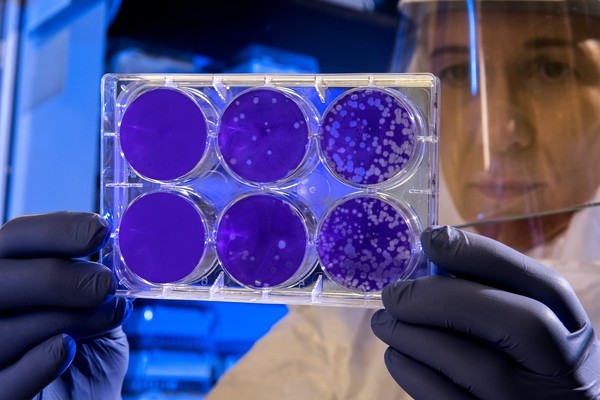Herd immunity proposed as a way to fight COVID-19

UNITED STATES President Donald Trump made headlines in September when he claimed the current pandemic would disappear without a vaccine by developing “herd mentality.” This verbal blunder was mocked by many and criticized by even more, as “herd immunity”—the correct term—is, simply put, a method of disease prevention where we let the virus run its course until it eventually dies out on its own. With a rising death toll and the lack of a proper vaccine, it seems unwise to propose such a move. Yet, some health specialists and countries such as Sweden have advocated this strategy to fight COVID-19, much to the confusion of the general public.
Understanding herd immunity
Herd immunity happens when the majority of a population is no longer susceptible to an infectious disease, thus preventing the spread of the disease until it eventually dies out. The two main ways to develop immunity is through vaccines and, for some diseases, previous exposure that has created antibodies in our immune system. Once a certain percentage of the population, calculated from “the average number of cases spawned by one infected individual*,” has become immune, said disease is no longer a threat to us.
This form of indirect protection has been a major player in containing and reducing the transmission of infectious diseases for several decades. By vaccinating a large majority of the population, the severity and number of infections could be easily handled. As a result, before COVID-19, outbreaks of infectious diseases were mostly seen in communities with little access to vaccines and proper medical equipment—for example, measles and chickenpox are rare in countries like the United States, but continue to plague developing countries**.
A proposed way to deal with COVID-19
Over the past year, some countries have refused to implement the measures recommended by the World Health Organization (WHO), such as social distancing and the use of masks, and have instead advocated herd immunity. Prior to September, the United Kingdom’s lax response to the pandemic came under fire when the chief scientific advisor, Patrick Vallance, claimed that the population could build up herd immunity over time***.
Similarly, Sweden refused to take any “drastic” measures, going so far as to fire doctors who insisted on the importance of wearing masks****. While the United Kingdom has now chosen to adopt stricter regulations, Sweden has defended its strategy, despite being one of the two countries with “high overall mortality rates that failed to rapidly reduce those numbers as the pandemic progressed*****,” the other being the United States.
Does it work?
With high-profile politicians claiming that herd immunity would be a viable solution to slowing down the pandemic, it is no wonder that some people have come together in support for removing measures that prevent us from returning to normal social activities. Protests against what some have deemed “unnecessarily strict” measures have continued, particularly in the United States, claiming that the virus should be allowed to run its course.
However, WHO Director-General Tedros Ghebreyesus has clarified that “never in the history of public health has herd immunity been used as a strategy for responding to an outbreak, let alone a pandemic******,” particularly as effective treatment has yet to be developed and no country in the world is equipped to deal with the massive onslaught of cases that would most likely ensue. He then called a strategy relying on herd immunity “immoral,” as it would cause thousands, if not millions, of unnecessary deaths.
Blindly proposing herd immunity is particularly dangerous because we have yet to understand how COVID-19 is different from other strains of coronavirus. While The Guardian reports that at least three companies in the United Kingdom are close to getting a vaccine approved for distribution, the WHO has yet to announce concrete research results. Additionally, a study in the United Kingdom has proven that immunity to COVID-19 is short-lived as the natural antibodies that protect against it usually disappear within a few months*******. Combined with the uncertainty of how easily the virus strain can mutate, many health professionals are arguing against even considering herd immunity as a solution for COVID-19, and continue to recommend strict social distancing measures.
* * *
When it comes to protecting ourselves against a virus that has such a detrimental effect on our society, no measure is too strict, and one death is one too many. Given how little we know about the COVID-19 virus, herd immunity at the cost of millions should not be an option.
*Nature
**John Hopkins Bloomberg School of Public Health
***The Guardian
****Science Magazine
*****Time
******BBC
*******Financial Times

